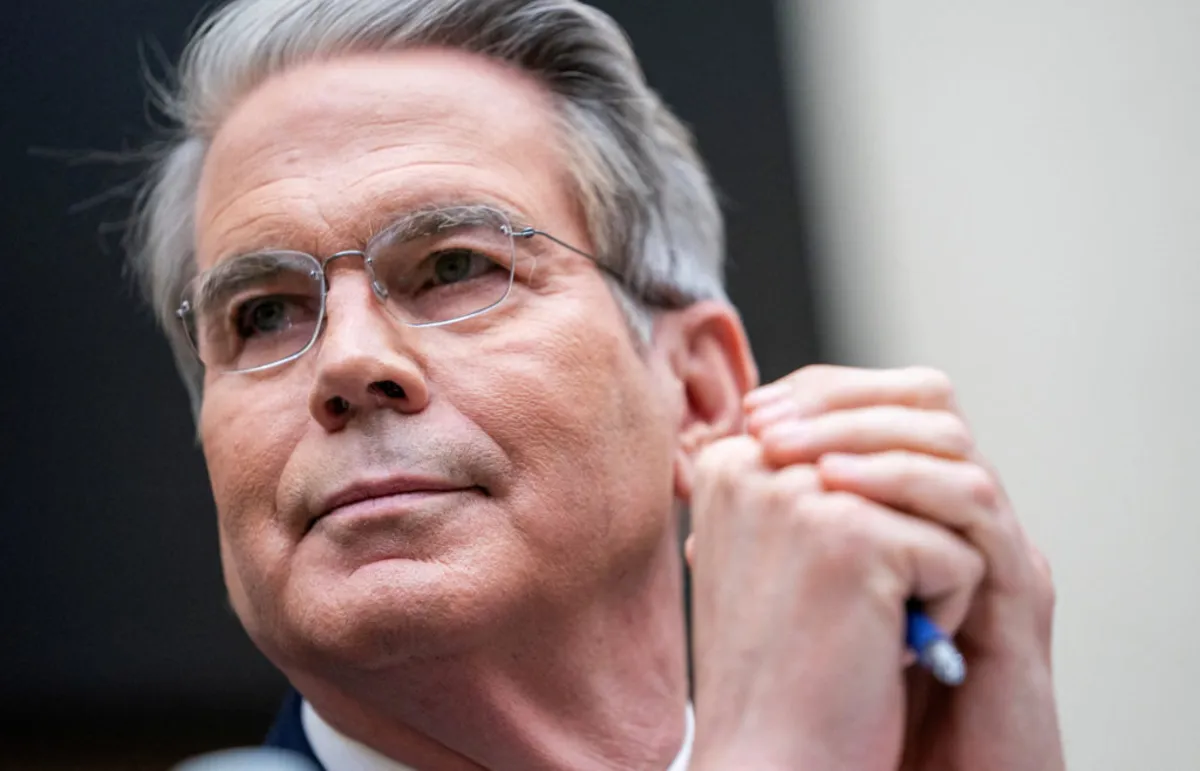
In a recent statement, Treasury Secretary Scott Bessent acknowledged that Walmart, the largest retailer in the United States, might pass on some of the financial burdens from President Donald Trump’s tariffs to its customers, resulting in higher prices at the checkout. Bessent revealed this information after a conversation with Walmart's CEO, Doug McMillon, just a day after Trump publicly urged the company to resist increasing prices as a response to the tariffs.
President Trump made it clear that he would be closely monitoring Walmart's pricing strategies, insisting the retailer should absorb the costs associated with the tariffs instead of transferring them to consumers. In a tweet posted over the weekend, he stated, “I’ll be watching, and so will your customers!!!” This remark underscores the ongoing tension between Trump’s administration and major retail corporations concerning how they handle tariff impacts.
Despite persistent doubts regarding Trump's economic strategies, Bessent sought to alleviate concerns about inflation. He characterized the uncertainty stemming from Trump's policies as a useful negotiating tactic in trade discussions. However, he also acknowledged that while Walmart would absorb some tariff costs, it may not be able to shield consumers entirely from price increases. “Overall, I would expect inflation to remain in line,” Bessent stated during his appearance on CNN.
Bessent emphasized that for Walmart customers, the decline in gasoline prices, which are currently averaging approximately $3.18 per gallon, should be a more pressing concern. This reduction, although higher than the previous week, may help mitigate the impact of rising prices on other goods. “What really matters for Walmart customers is the decline in gasoline prices,” he noted.
Despite Bessent's claims, Walmart seems to be experiencing challenges in maintaining low prices. Executives from the retail giant reported that they began noticing higher prices on their shelves starting in late April, a trend that has accelerated into May. Chief Financial Officer John David Rainey highlighted the delicate balance Walmart must maintain: “We’re wired to keep prices low, but there’s a limit to what we can bear, or any retailer for that matter.”
Bessent also addressed the recent downgrade of U.S. government debt by Moody’s Ratings, dismissing it as a “lagging indicator.” He asserted that the financial markets had already taken into account the substantial federal debt, estimated at around $36 trillion. Nevertheless, the tax reform plan promoted by Trump is expected to increase deficits by roughly $3.3 trillion over the next decade, raising concerns among analysts about its sustainability.
As the Trump administration continues to negotiate tariff rates with approximately 40 major trading partners ahead of a July deadline, many small business owners are expressing concerns about the potential impacts. Bessent pointed out that the uncertainty surrounding tariffs has created challenges for both consumers and businesses planning their expenditures. “Strategic uncertainty is a negotiating tactic,” he explained, emphasizing the need for careful negotiation strategies.
In summary, as the debate over tariffs and their implications for the economy continues, Walmart and other retailers find themselves at a crossroads, balancing the pressures of rising costs and the expectations of consumers amid a complex economic landscape.